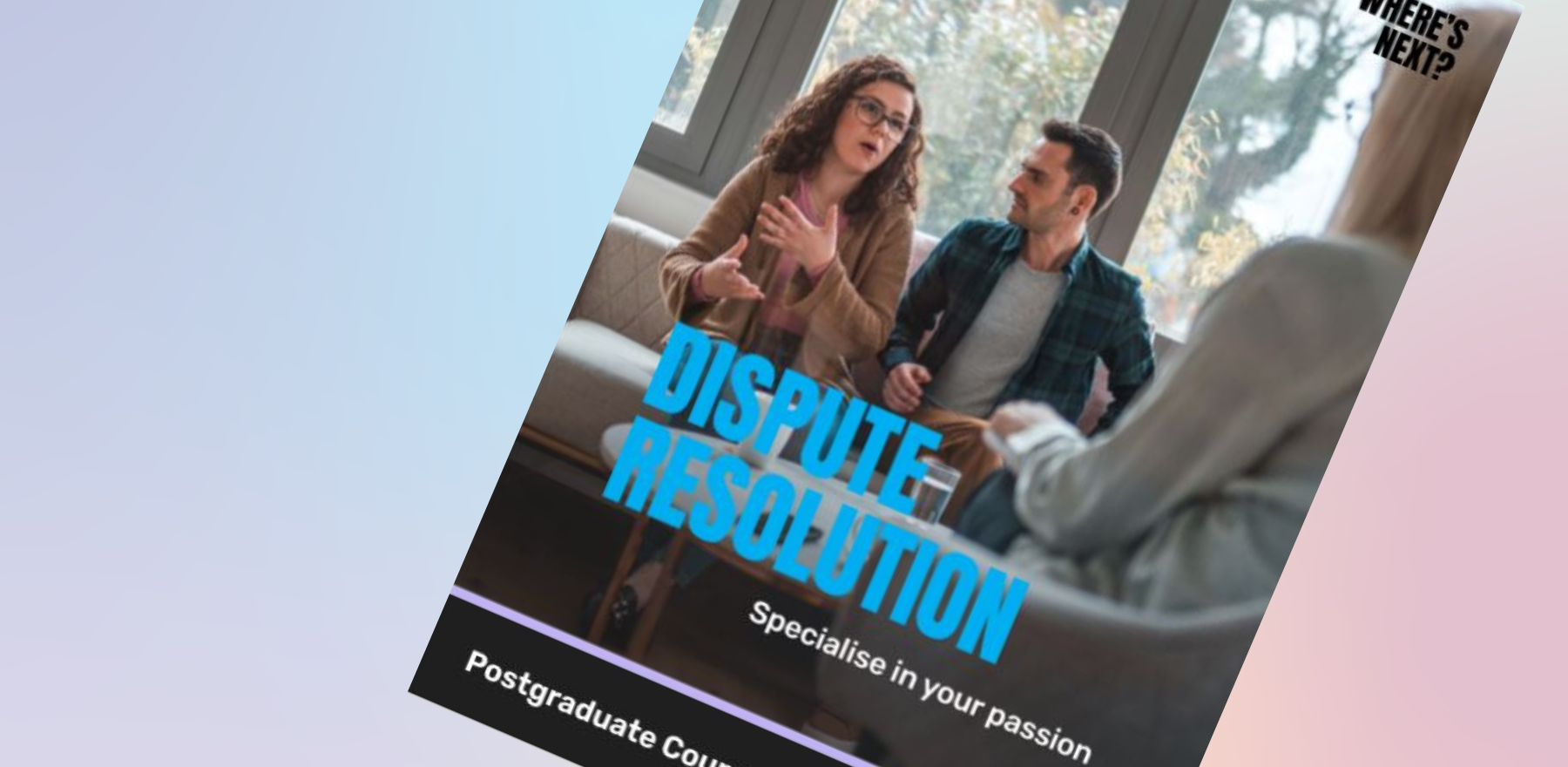Build your career
Options to complete a Graduate Certificate, Graduate Diploma or Masters and advance your career
Advance your expertise
Sharpen your expertise in specific practice areas with practical, real-world focused subjects designed to elevate your proficiency.
A POSTGRADUATE QUALIFICATION GIVES YOU AN EDGE
The College of Law can help you expand on what you already know and acquire new knowledge while providing you with opportunities to hone your skills in a practice area, so that you stand out from the competition.
Open up new career pathways by studying a Graduate Certificate, Graduate Diploma or Master of Laws program. One that’s reality-based, balanced and world-renowned, so you can become the best version of yourself for your client, practice and community.
This is your chance to build career prospects, earn industry recognition, and boost your earning potential.
Curious about where your skills could take you next? Scroll down to explore the variety of practice areas, detailed course subjects, and potential awards waiting for you. Find your perfect fit and tailor your education to your career ambitions.
Intake 3, Starts 11 August 2025 | Intake 4, Starts 10 November 2025
PROGRAM OPTIONS
Select a practice area to explore relevant courses and subjects
PROGRAM OPTIONS - DISPUTE RESOLUTION
Graduate Certificate in Applied Law
2
Choose two subjects in your chosen area
A recognised law degree (LLB, JD, or equivalent)
Approx 6 months
Graduate Diploma of Applied Law
4
Choose four subjects in your chosen area
A recognised law degree (LLB, JD, or equivalent)
1 year part-time
Master of Laws (Applied Law) majoring in Dispute Resolution
8
3 DRP subjects, 4 elective subjects or a second major and the Capstone project in Dispute Resolution
A recognised law degree (LLB, JD, or equivalent)
2 years part-time
OR START WITH A GRADUATE CERTIFICATE
Take control of your career
If you decide later to progress towards a Masters, you’ll receive credit towards that award.
DISPUTE RESOLUTION SUBJECTS
DRP00 - Capstone Project (Dispute Resolution)
Intake 2, 4TOPICS
THE SUBJECT HAS FOUR COMPONENTS
- Four short answer questions
- Two legal writing samples
- Oral communication (e.g. client interview) assessment held through online conferencing
- Reflective analysis
DRP1 - Foundations of Dispute Resolution
Intake 1, 3TOPICS
- Background to dispute resolution
- Preparing for negotiation
- Managing negotiation
- Preparing for mediation
- Managing mediation
- Conciliation
- Expert determination
- Arbitration
- Litigation and finalising resolution agreements
DRP2 - Negotiation
Intake 2, 4TOPICS
- Introducing negotiation
- Models of negotiation
- Preparing for negotiation Implementing a planned negotiation
- Managing the negotiation process
- Applying critical communication skills to negotiation
- Managing challenging issues in negotiations
- Negotiating ethically
DRP3 - Advocacy
Intake IntensiveTOPICS
- Fundamentals of advocacy and the advocate's role
- Ethics and an advocate's duty to the client and the court
- Rules of evidence
- Examination-in-chief
- Witnesses (lay and expert) and interpreters
- Cross-examination and re-examination
- Submissions and arguments
DRP4 - Mediation
Intake IntensiveThis subject discusses where mediation sits on the dispute resolution spectrum and how the process assists in the resolution of disputes. The mediation process and the skills used by mediators within the mediation process, are also discussed. This is an intensive subject with pre-work followed by a compulsory four day intensive workshop. This course structure satisfies the requirements under the NMAS. The College of Law offers the National Mediation Assessment. Find your course here.
* Current Nationally Accredited Mediators are eligible for advanced standing for this DRP4 Mediation subject.
TOPICS
- The dispute resolution spectrum
- Conflict analysis and pre-mediation preparation
- Mediation models and processes
- Communication skills and mediation
- Facilitative mediation
- Mediating a matter
START DATES
| Feb Intake 1 | May Intake 2 | Aug Intake 3 | Nov Intake 4 | |
|---|---|---|---|---|
| START DATE | 10 Feb 2025 | 12 May 2025 | 11 Aug 2025 | 10 Nov 2025 |
| CENSUS | 26 Feb 2025 | 28 May 2025 | 27 Aug 2025 | 03 Dec 2025 |
| END DATE | 02 May 2025 | 01 Aug 2025 | 31 Oct 2025 | 06 Feb 2026 |
| Subject | Start Date | Census | End Date | Workshop Date |
|---|---|---|---|---|
| DRP3 - Advocacy | 22 Sep 2025 | 01 Oct 2025 | 31 Oct 2025 |
15 - 17 October 2025 |
| DRP4 - Mediation | 06 Oct 2025 | 15 Oct 2025 | 14 Nov 2024 |
TBC |
| FDR1 - Family Law and Mediation | 11 Aug 2025 | 20 Aug 2025 | 19 Sep 2025 |
1 - 3 September 2025 NSW/VIC |
| FDR2 - Children’s Matters, Family Law and Family Dispute Resolution | 22 Sep 2025 | 01 Oct 2025 | 31 Oct 2025 |
16 - 18 October 2025 NSW/VIC |
| FDR3 - Advanced Family Dispute Resolution | 03 Nov 2025 | 12 Nov 2025 | 12 Dec 2025 |
24 - 26 November 2025 NSW/VIC |
| FDR4 - Case Management in Family Dispute Resolution Capstone | 26 Jan 2026 | 04 Feb 2026 | 06 Mar 2026 |
16 - 18 Feb 2026 QLD & WA
|
| FDR5 - Virtual Simulated Practice | 08 Sep 2025 | 18 Sep 2025 | 31 Oct 2025 |
Day 1 – 26 September 2025 |
| LB3 - Business Strategy: Planning for Success | 03 Nov 2025 | 12 Nov 2025 | 12 Dec 2025 |
| Subject | Start Date | Census | End Date | Workshop Date |
|---|---|---|---|---|
| FDR1 - Family Law and Mediation | 11 Aug 2025 | 20 Aug 2025 | 19 Sep 2025 |
1 - 3 September 2025 NSW/VIC |
| FDR2 - Children’s Matters, Family Law and Family Dispute Resolution | 22 Sep 2025 | 01 Oct 2025 | 31 Oct 2025 |
16 - 18 October 2025 NSW/VIC |
| FDR3 - Advanced Family Dispute Resolution | 03 Nov 2025 | 12 Nov 2025 | 12 Dec 2025 |
24 - 26 November 2025 NSW/VIC |
| FDR4 - Case Management in Family Dispute Resolution Capstone | 26 Jan 2026 | 04 Feb 2026 | 06 Mar 2026 |
16 - 18 Feb 2026 QLD & WA |
| FDR5 - Virtual Simulated Practice | 08 Sep 2025 | 18 Sep 2025 | 31 Oct 2025 |
Day 1 – 26 September 2025 |
TEACHING STAFF



Florence Thum
Assistant Director and Lecturer, Psychotherapist and Coach
LLB, GradCertEd, Mcounselling and Applied Psychotherapy, LLM
Former litigation and dispute resolution lawyer with postgraduate qualifications in law, education and psychotherapy, Florence is keen to extend your professional skills in the modern workplace.


Linda Kochanski AM
Practice Area Leader: FDR and Mediation Programs and Director: Amadras Board
Latest
HAVE QUESTIONS OR READY TO ENROL?
Book a call back with one of our Customer and Student Engagement Advisors
I commenced the course with the mindset that I want to help families and offer them the quality dispute resolution services they deserve.
Dr Hadeel Al-Alosi, FDRP Graduate

Each of us brings something from our own experience, knowledge and wisdom about family law, mediation and dispute resolution, so we are always able to share and learn.
Josephine Byrnes-Luna, FDRP Graduate

Family law can be very litigious, but it doesn't have to be. So my practice in learning more about dispute resolution areas and how to manage dispute pollution and conflict resolution was valuable.
Emma Youdale, LLM Alumni Graduate
DISCOVER MORE
Scholarships
If you’re experiencing financial hardship and unable to afford postgraduate study, see if you are eligible for the The Kay Smith Scholarship. This scholarship honours one of the longest serving and most respected people of The College of Law. It is designed to support the education aspirations of outstanding law graduates and young lawyers.
Guide download
Inside the course guide, you will find information on: how this practical program will equip you with the skills and tools you will need, who the course is for, course format, topics and assessment structure, course presenters, workshop dates, prices and how to enrol.
Student success stories
Read how Craig’s postgraduate study accelerated his career by a decade and enabled him to become a specialist and eventually started his own firm.
FREQUENTLY ASKED QUESTIONS
This depends on your workload and your personal situation. If you complete one subject every intake, you could complete your Masters in two years. However, you have five years to complete the course from your intake commencement date.
You can do any of the following without financial penalty any time before the published census date for each intake:
- Withdraw completely
- Change the subject or course you are enrolled in
- Defer it to a subsequent intake (must be within the next 12 months)
As you have five years to complete your Masters, you don’t need to complete a subject every intake. However, if you do not study for two consecutive intakes – then you can apply for a Leave of Absence.
You can only request a leave of absence twice over the course of your studies.
We recommend that you set aside 10-12 hours a week on study per subject, one unit per semester.
Completing two subjects in the same intake may require up to 25 hours of study and readings each week.
There are four intakes a year, February, May, August and November.
You may be entitled to claim your full 10 units per subject for your CPD requirements.
However, you may still need to complete some mandatory CPD units. Please check with your local law society for the requirements in your state or territory.
WA based students may claim up to six units per subject (six CPD units for an intensive subject that has a compulsory workshop requirement or four CPD units for any other subject).
College will lodge the CPD points with the Legal Practice Board on successful completion of the subject(s).
The College’s Credit for Prior Learning Policy encourages practitioners who have completed previous postgraduate and other recognised study to apply for credit towards either the LLM (Applied Law) or the Master of Applied Law (Family Law).
A maximum of three subject credits may be granted towards the Masters awards.
- If you have undertaken a Graduate Diploma of Legal Practice with The College of Law within the last ten years, you may apply to receive up to two elective subjects of unspecified credit
- If you have undertaken a Graduate Diploma of Legal Practice with another provider within the last ten years, you may apply to receive one elective subject of unspecified credit
- If you have undertaken other postgraduate study, such as an LLM or Graduate Diploma of Law, whether you have completed the award or not, you may be eligible to receive credit for that study
- Accredited Specialists may qualify for exemption of the foundations subject and Capstone Project for their area of major
- Applicants who have completed a Legal Practice Management Course within the last 5 years at The College of Law in may receive one subject specified credit
Yes. Many Master of Laws (Applied Law) students choose electives from our Legal Business Management course. Please contact us to learn how.
No. To become a Family Dispute Resolution Practitioner, you will need to:
- Complete the Graduate Diploma in Family Dispute Practice (FRDP) which satisfies six core units of competency
- Seek accreditation with the Commonwealth Attorney-General’s Department
Many students choose to pursue an LLM with a double major in Family Law and FDRP.
For 2025, each subject in our postgraduate programmes costs $4,150, with no GST applicable. Please note that our fees are subject to annual review and may change during your enrolment.
Full payment is required at the time of enrolment each semester, and we accept various payment methods including cheque, Electronic Funds Transfer (EFT), and credit card.
Additionally, if you are an Australian citizen, a New Zealand citizen, or hold a permanent humanitarian visa, you may be eligible to defer your payment through the Australian Government's StudyAssist FEE-HELP scheme.
Yes, if you are an Australian citizen or permanent resident, you may be eligible to receive FEE-HELP. For more information, visit the Australian Government Study Assist website or download the Study Assist FEE-HELP information sheet.
Please note that StudyAssist FEE-HELP is not available for single subject enrolment.
Yes, you can, but Study Assist FEE-HELP will not apply.
Yes. If you are from a non-English speaking country or your previous studies were in a language other than English, you will need to demonstrate your English skills in accordance with the IELTS standard before starting the program. The requisite IELTS standard is at level 8 (writing), 7 (listening), 7.5 (speaking), 7 (reading), and 7.5 overall.
JOIN OUR NEWSLETTER
Sign up to keep up to date with latest news, programs, events and career tips.
































